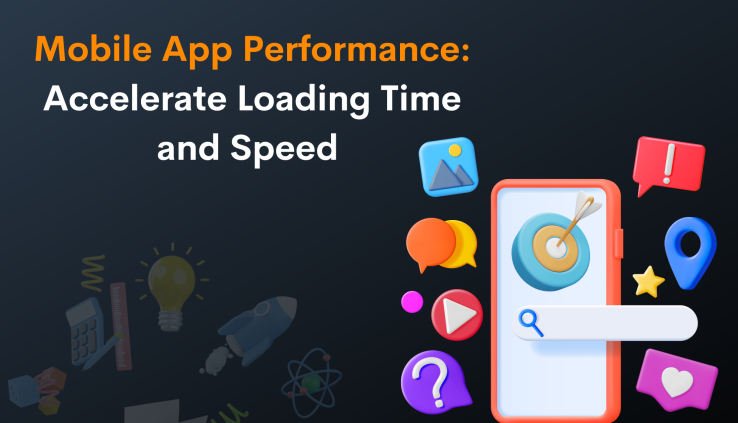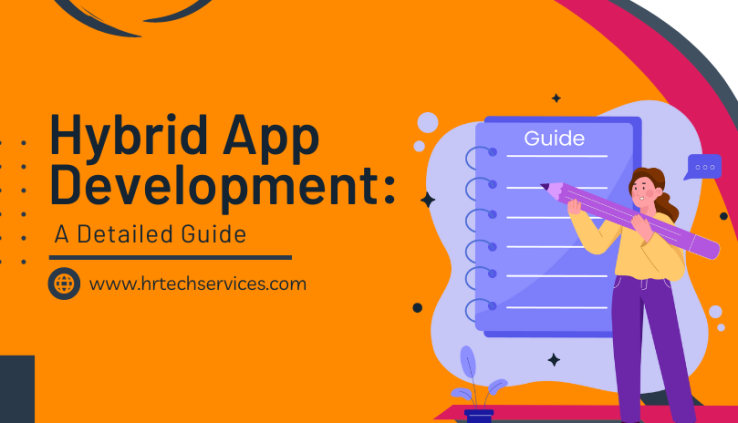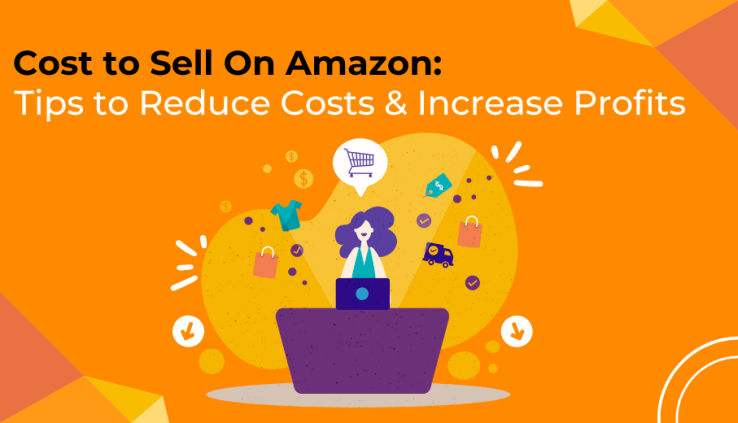Enhanced Mobile App Performance: Best Practices & Techniques
Mobile apps are an essential part of everyday lives in the fast-paced world. They help us with everything from placing food orders to handling our finances. But given that millions of apps compete for users’ attention so apps must operate efficiently and offer a positive user experience. If an app takes longer than three seconds to load, 53% of users will give up on it, according to a Google study. Mobile app performance entirely relies on app launch and loading time. So it is crucially essential to optimize your app’s loading time and perfect mobile app launch.
Mobile app performance optimization can help with that. Developers can keep users engaged and happy with their app experience by enhancing loading times and speeds. But how do you improve mobile app performance, and which mobile app development strategy and methods work best?
This article will examine the latest and best ways to improve mobile app performance. Providing you with the tips and knowledge. We’ll also present some startling data on the influence of app performance on user satisfaction and behavior. So let’s get started and learn how to enhance your app’s user experience and performance.
Why is Mobile App Performance Important?
Brands cannot offer inconsistent online experiences on a planet becoming externally digital. People typically have limited patience once apps don’t operate effortlessly and effectively.
App errors are responsible for 75% of uninstalls. When software loads too slowly, 71% of users give up. These typical statistical data give a complete image. You should prioritize mobile app performance throughout your planning process. You are in danger of dropping users and revenue if you don’t have a straightforward plan to ensure your mobile app performs at its peak.
To build a successful mobile app it ultimately depends on the experience users have with your app. You may lose a user if they are dissatisfied after using your app. Poor performance severely kills off applications across industries. You must pay close attention to the functionality of your newly developed app if you want users to be satisfied and the app to be successful. If your application succeeds, your clients will probably be more interested and can spend extra. If the effectiveness of your mobile application is highly valued, attention will be given to your conversion rate. Many studies have demonstrated that shorter load times provide higher conversion rates.
How to Measure Mobile App Performance?
You can improve mobile app performance by measuring it through the given number of factors mentioned below:
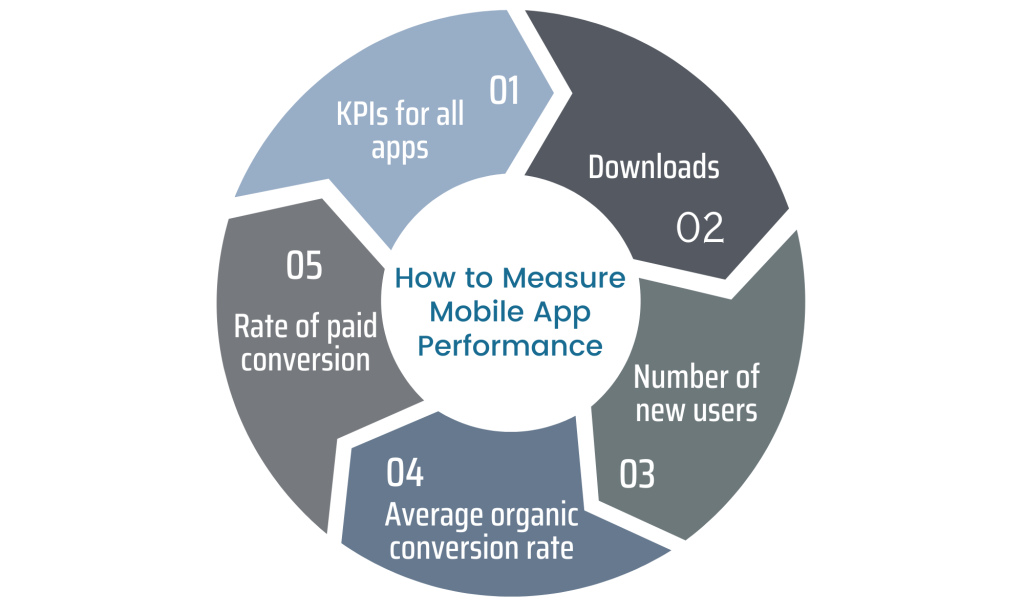
- KPIs for all Apps
As Key performance indicators don’t need technical knowledge of mobile or advancement, anybody can use it to track them.
- Downloads
An app’s success is frequently inversely related to the total count of installs it receives. This measurement may appear entirely arbitrary. For instance, ten million installations of a social media application are not comparable to one million installations of a paid subscription service.
- Number of New Users
To know the performance, you should track the number of new users who download your app. The percentage of your subscriber base expanding shows how well it performs.
- Average Organic Conversion Rate
The organic conversion rate refers to the percentage of users converted without the use of paid platforms. You can monitor your organic activities’ outcomes by monitoring these Key performance indicators.
- Rate of Paid Conversion
You can spend money on various methods to increase your percentage of conversion. Through paid advertisements, such as ads on Instagram and paid Twitter ads, to achieve your objectives more quickly.
What Causes App Performance Problems?
Here are some common issues that result in poor application.
1. Interface
- Improper methods used to produce shadows on UI components.
2. The Server-Side
- Receiving a lot of unnecessary and weighty information from the server, making many HTTP requests.
- Dealing with API lag, inconsistencies, and data reduction.
3. Main Thread
- The application’s main thread is used for heavy computations.
- Database processes, improperly designed databases, and personal information recovery methods.
These are, in a nutshell, the greatest standard and typical causes of app performance problems or possible app slowness. There are frequent cases that are specific to each quick fix.
How to Improve Mobile App Performance?
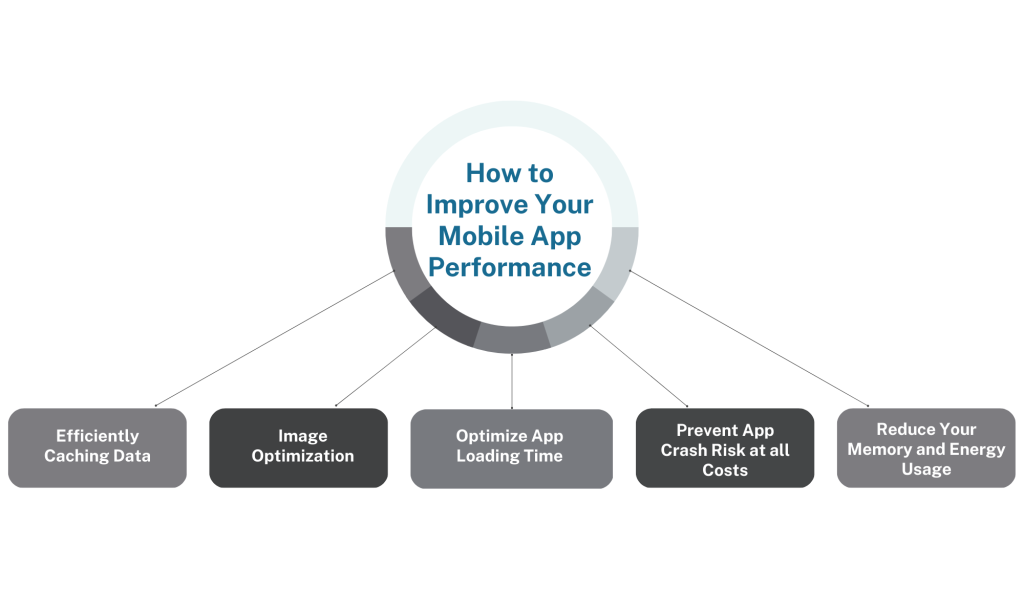
The set of techniques guaranteed to increase your app’s performance and elevate the user experience is below.
1. Efficiently Caching Data
A phone’s hard disk stores applications and resources to guarantee quick and easy access to your data on the application. Data caching removes performance problems in the situation of an internet outage. It is essential to identify documents and computational methods that may be cached to accelerate the app.
Keeping a balance between data caching and loading is crucial, so users do not receive out-of-date information. Additionally, you shouldn’t cache every piece of data if there isn’t enough room.
2. Image Optimization
The app’s performance is improved, and slowdowns are reduced thanks to enhanced pictures and visual designs. It might appear that a user will benefit more from a larger image. Utilizing an image bigger than what is showcased on the screen is pointless.
Therefore, you ought to create proper use of compression techniques and resizing. While maintaining resolution, compression permits weight reduction of an image. Contrarily, resizing entails adjusting an image’s size so the app can correctly display it. Finding a balance instead of the smallest size is possible and appropriate. It is preferable to select the magnified picture if available, as this ensures that it is presented perfectly everywhere.
3. Optimize App Loading Time
The time it requires for an app to load is among the most crucial elements that impact how well it performs on mobile devices. It’s crucial to reduce the size of the app by compressing resources. Optimizing images and using code optimization approaches can improve app loading times. Apps can also delay loading additional resources until needed, only loading those necessary at startup.
4. Prevent App Crash Risk at all Costs
A mobile app collapse during an exceptional customer experience can be devastating. Consider the spikes and crashes your fictionalized customer experienced while using your app. A crash in an application is the worst possible front-end quality issue.
The most practical way to accomplish this is to continually assess, gather, and deal with the records on those mentioned above:
- The ratio of users who experience a crash in a particular time frame
- The recurrence of app crashes over a specific period
- Percentages of network problems and the number of times your mobile phone app got hung.
Let’s take a break, though, before we discuss front-end issues and information gathering.
Developers should concentrate on how many requests an app makes to the server. The fewer requests, the lower the likelihood that the app will slow down or crash, while higher requests, shows more chance of an app crash. The app won’t crash by properly maximizing and resolving this problem on the back end.
You can prevent app crashes by considering this scenario while developing the app and gathering information on app crash data.
5. Reduce Your Memory and Energy Usage
Storage and battery life are essential for mobile users because our devices offer limited storage capacity. Therefore if an app uses little power and storage, your user experience will get enhanced.
The two characteristics of an app that can affect memory are:
- Memory leak
- Push Notification
A user’s continuous app use can quickly deplete battery capacity, so just be sure to consider this during the development cycle. As an option, consider informing consumers to switch off functionalities like Bluetooth and GPS if they’re not in use. It will help in conserving battery performance. Thus presenting your app as approachable and customer-focused.
Future of Mobile App Performance
Mobile apps must perform competently to give users an inexorable and fulfilling experience. Developers can keep users interested and stop them from leaving the app by speeding up loading times.
HR Tech LLC provides the best mobile app development services in creating elevated mobile apps. Our team of experts employs the latest mobile app optimization techniques to ensure applications operate at its peak. Look no further if you’re searching for someone to assist you in creating a high-performing mobile app. Get in touch immediately to learn more about our offerings. Learn how we can assist you in creating an app that offers excellent performance and a great user experience.

